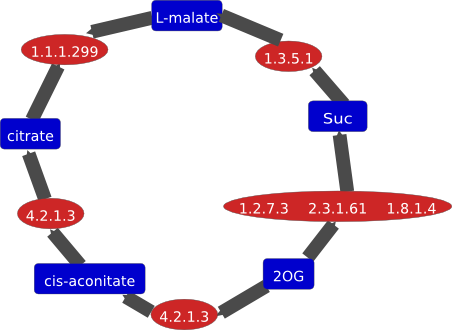EC Number   |
Application   |
Reference   |
|---|
    6.3.4.16 6.3.4.16 | analysis |
development of a CPS1-reporter system for the assessment of ammonia metabolism. Labeling of CPS1 gene in cell lines HepG2, and LO2, with fluorescence protein. Cellular detoxification enhancers are selected among a collection of 182 small molecules. In both CPS1 reporter cell lines, the fluorescence intensity is positively correlated with cellular CPS1 mRNA expression, ammonia elimination and secreted urea, and reflects ammonia detoxification in a dose-dependent manner |
745438 |
    6.3.4.16 6.3.4.16 | biotechnology |
ammonia elimination as functional marker in hepatocyte cultivation and zonation in a bioreactor, and construction of a bioartificial liver, overview |
691725 |
    6.3.4.16 6.3.4.16 | medicine |
human hepatocellular carcinoma cells do not express CPS1, whereas cultured human primary hepatocytes express abundant levels. CPS1 is silenced or down-regulated in liver tumor tissues compared with the matched noncancerous tissues. The expression of CPS1 in human hepatocellular carcinoma cells is restored with demethylation agent, 5-azacytidine. Two CpG dinucleotides, located near the transcription start site, and a CpG-rich region in the first intron are hypermethylated in human hepatocellular carcinoma cells |
713715 |
    6.3.4.16 6.3.4.16 | medicine |
upregulation of CPS1 gene most significantly predicts poor response to neoadjuvant concurrent chemoradiotherapy. CPS1 overexpression is significantly related to advanced posttreatment tumor and nodal status, and inferior tumor regression grade. CPS1 overexpression is significantly associated with shorter disease-specific survival and metastasis-free survival. CPS1 protein expression is more abundant in colon cancer cells than nonneoplastic HCoEpiC |
746546 |





